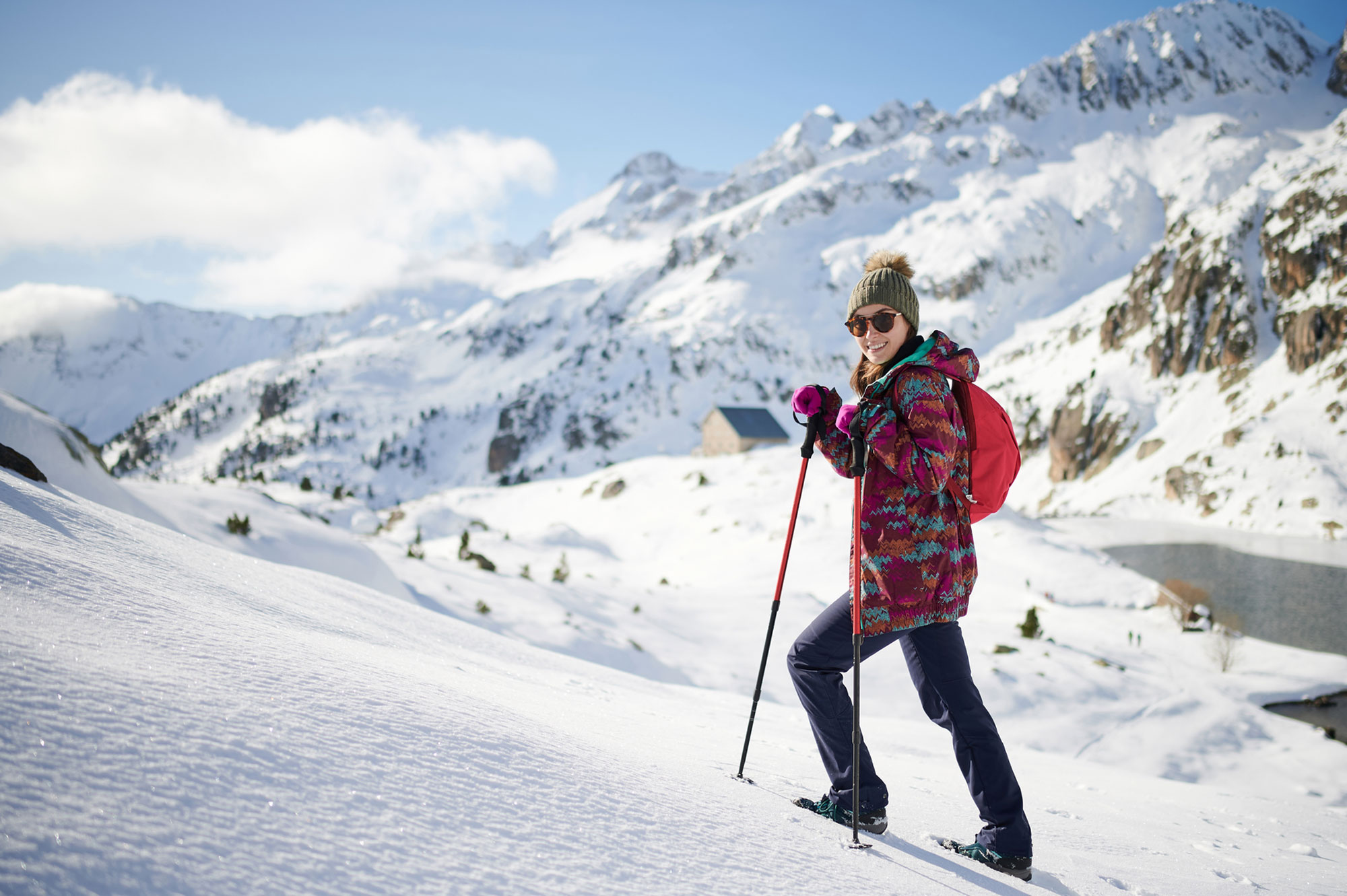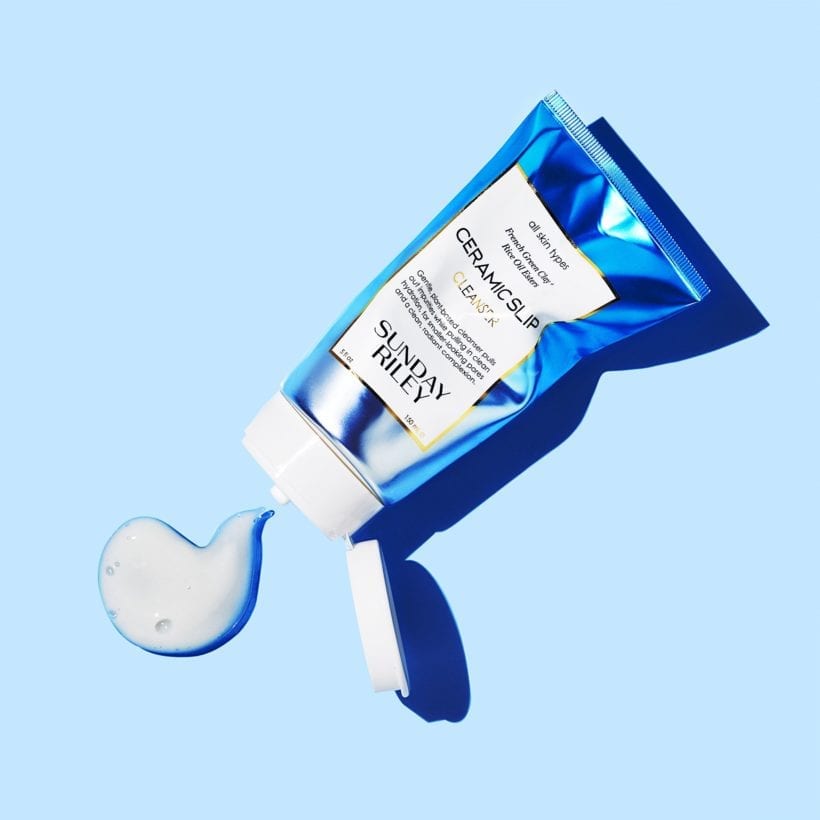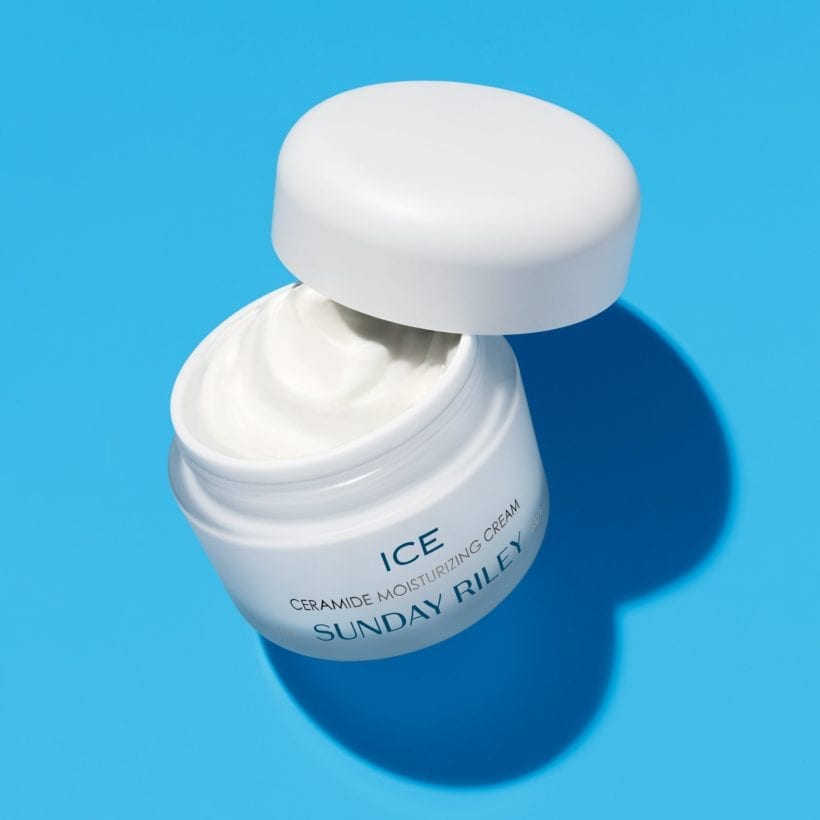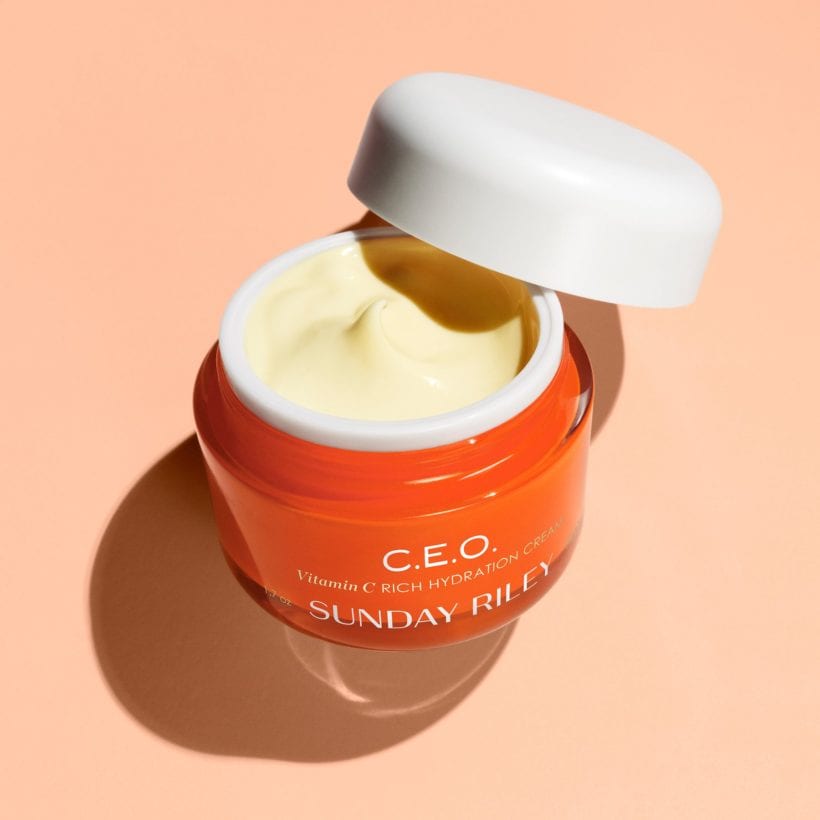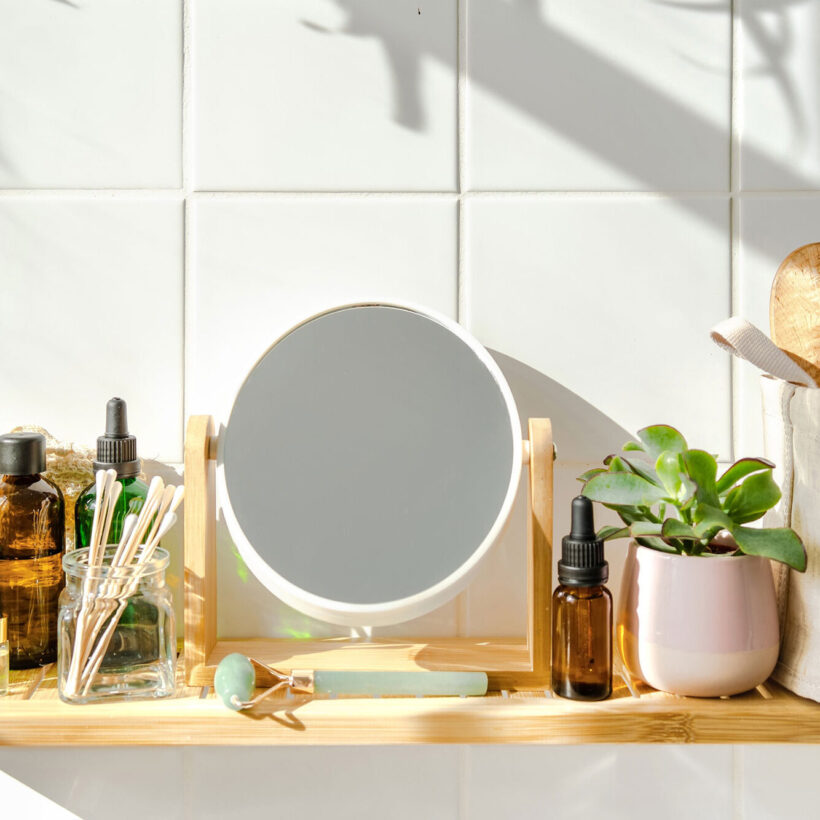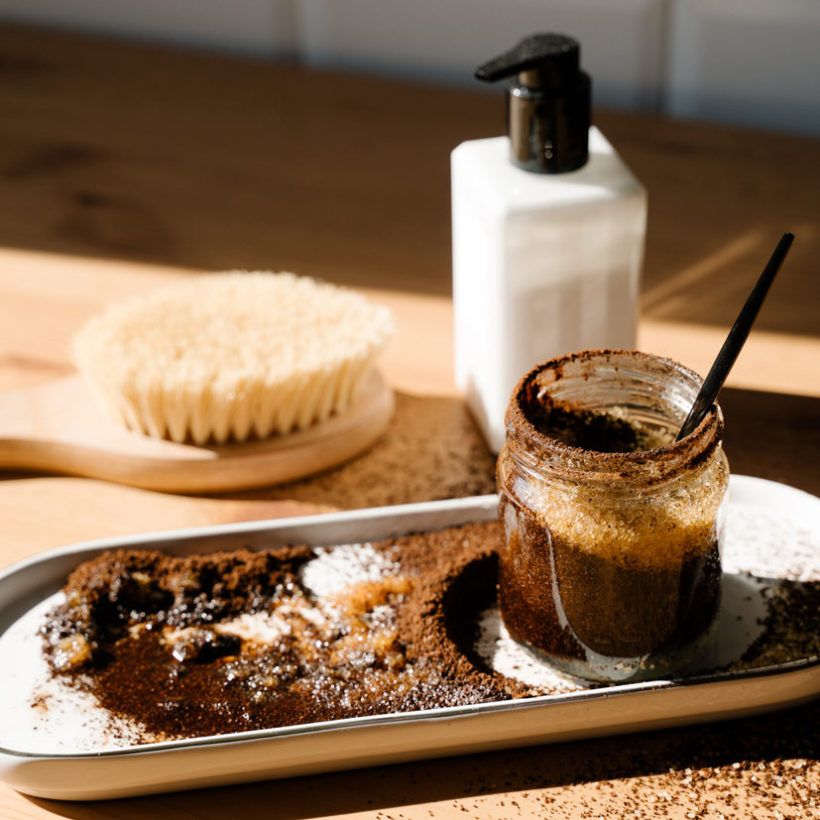There’s something exhilarating and relaxing about a ski trip. Whether you head to Colorado and Utah or travel to Switzerland, hitting the slopes is an exciting adventure. Especially since it’s a whole experience — swish-swishing down snowy caps and toasting to a day well spent with a glass (or three) of champagne.
This athletic endeavor is excellent for your heart health — but it does require a little more TLC for the largest organ in your body: your skin. With super-cold temperatures, harsh wind, and dry indoor environments, you may return home from your winter wonderland retreat to discover chapped and red skin. But you don’t have to! Fight skiing skin blunders with these dermatologist-backed tips.
Meet the Experts
Shawnda Dorantes, APRN, MSN, FNP-C, is an aesthetic nurse practitioner and clinical educator at Beauty Lounge Medical Spa.
Dr. Luigi L. Polla is a Geneva-based dermatologist and the founder of Forever Institut and Alchimie Forever.
Adrienne O’Connell, D.O., is the medical director and president of Laguna Beach Aesthetics.
Jodi LoGerfo, DNP, APRN, FNP-BC, DCNP, a dermatologist with the Orentreich Medical Group.
Leave your foam cleanser at home.
As you pack your beauty and skincare essentials for the flight, leave your foam cleanser at home, says Shawnda Dorantes, APRN, MSN, FNP-C, an aesthetic nurse practitioner and clinical educator at Beauty Lounge Medical Spa. How come? As she explains, foam cleansers are extremely effective in removing excess oils and sweat, making them great for summertime. “However, it’s best to transition to using a gentle cream or regular cleanser to keep your skin’s protective barrier intact during the winter months,” she continues. “This is because the cold air and indoor heat lack moisture or humidity, so they tend to irritate and dry out the skin.”
Limit hot tub and shower time.
After bundling up in layers, braving the chilly winter air and battling snow for hours, a long soak in a hot tub or bath is tempting. (After all, all you want to do is warm up!) As much as you can, try to keep your time in hot water limited, urges Dr. Luigi L. Polla, a Geneva-based dermatologist and the founder of Forever Institut and Alchimie Forever. When we spend an extended period in these heated areas, we strip our skin of its natural oils, thus, drying us out even more. “If you can’t help yourself, it is imperative to add oil to the bathwater or to use a body oil post-hot tub. This will help minimize the dehydration of the skin,” he adds.
Don’t skip the sunscreen.
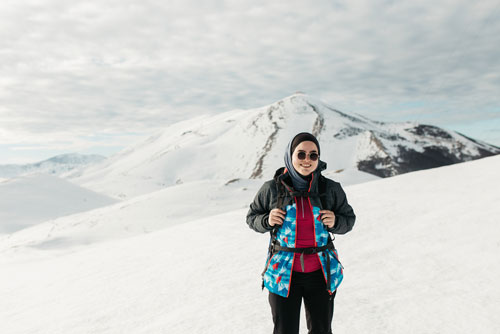
You need to wear sunscreen regardless of the date it says on your calendar. And yep, that’s even true if you’re on top of a mountain in freezing temperatures. In fact, sun protection is the most important factor in skiing and skin care, according to Adrienne O’Connell, D.O., the medical director and president of Laguna Beach Aesthetics. “While on the slopes, we are at higher elevations, which means stronger UV rays. We also have to battle the UV rays that are being reflected off the snow,” she explains.
She recommends applying an SPF of at least 50 every few hours. “It is convenient to bring a travel size to keep in the pocket of your ski jacket to ensure continuous reapplication,” she adds.
Give extra TLC to your face, hands, and lips.
An easy way to think of protecting your skin during a ski trip is to consider what parts of your body are exposed to the elements: the cold, the sun, and the wind. Usually, this is your face, your hands, and your lips. Dr. Polla says it’s essential to give extra moisture and care to these areas to maximize your skin’s vitality.
For your face.
Dr. Polla says to use a heavy moisturizer that will create a barrier between your skin and the environment. “Anti-redness ingredients are important, as the wind and cold temperatures will affect the capillaries in the skin, which translates into flushing and the look of redness,” he says.
For your hands.
Dr. Polla often refers to the hands as your second face since the skin there is thin and delicate and thus very prone to show signs of aging, even more so when exposed to the elements. “Gloves during a ski weekend are a must,” he says. “The fabric of gloves will lock in moisture and prevent moisture loss from the wind and cold. This is particularly important for anyone experiencing eczema, which is always aggravated by cold temperatures.”
For your lips.
Definitely not least, your puckers need consistent SPF and protection while skiing. “The skin of the lips is the thinnest, and as such, it does not provide much protection against the elements,” Dr. Polla says. “Apply a lip treatment with SPF throughout the day. Also, an occlusive treatment every night is a great way to prevent dry, chapped, even cracked lips.”
Make hydration a priority.
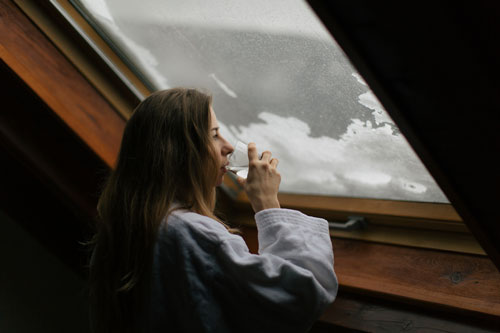
In addition to the hydration — aka moisturizer! — you apply on your skin, Dr. O’Connell also notes it’s vital to stay quenched while skiing. Since the snow climate is cold and lacks humidity, it’s easier to dehydrate quickly. She recommends drinking adequate water throughout the day and trying your best to go easy on the bubbles in the hot tub. “Alcohol dehydrates us and can lead to dry, cracking skin which in turn can lead to wrinkles,” she adds.
Also, you may enjoy a super-toasty room after a chilly day on the slopes, but the air we breathe while we sleep plays a factor in hydration, too. If possible, avoid overheating the room — or crack open the window on a cold-weather trip, suggests Jodi LoGerfo, DNP, APRN, FNP-BC, DCNP, a dermatologist with the Orentreich Medical Group. “Using a humidifier is also helpful to keep indoor air moist and can help even the driest skin,” she notes.
Wear breathable clothing.
Last but not least, your clothing matters for skin health, too! Dr. LoGerfo recommends starting with a good base, then building up your layers depending on the conditions. “On the outside, you want your clothing to be protective of the potential ski conditions, including cold, and wind, and from the inside, protect your skin from perspiration,” she continues. “The base layer should be comfortable and be able to wick the moisture away from your skin. It should be super comfortable. Avoid wearing anything that can cause excessive friction on the skin, like wool.”
We only recommend products we have independently researched, tested, and loved. If you purchase a product found through our links, Sunday Edit may earn an affiliate commission.
